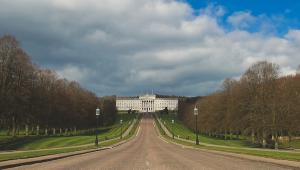Scottish first minister Nicola Sturgeon accused Westminster of having deliberately kept the devolved administrations “substantially in the dark” in spite of its initial promise of genuine participation in the talks, ahead of the meeting in Jersey.
It followed a plea from Scottish Tory leader Ruth Davidson, in a speech to small business leaders on Thursday evening, to “step up the pace” of progress in the negotiations.
Davidson urged the UK government to deliver greater clarity on what would happened to powers repatriated from Brussels post-Brexit.
The UK government denied the criticisms, insisting: “We are committed to securing a deal that works for the entire UK, including Scotland."
There had been “an unprecedented level of engagement” with the devolved administrations and it would continue.
But Sturgeon said. "The UK government assured us that the Joint Ministerial Committee would seek to agree UK positions and discuss issues stemming from the negotiations, respecting the devolved competencies, but the UK government then allowed that process to fall short of what is required."
In the event, the JMC had only met once since the beginning of substantive talks in June.
“This is not an abstract debate about process," the first minister said.
Scottish ministers have drawn up a list of 11 powers due to be repatriated from Brussels, which they believe fall within Holyrood’s devolved competence.
In spite of hints this week that the UK might be willing to effect a rapid transfer of some of these powers, no firm assurances have been given.
They include issues such as fisheries policy, where Scotland has the dominant UK interest. Rural Economy Secretary Fergus Ewing, prefacing separate talks on fishing quotas, urged the UK government to “come clean” about its plans for the industry post-Brexit.
"Leaving the EU will have an enormous impact on Scottish jobs, our economy and our relationship with the world - indeed, Brexit's effects are already being felt,” Sturgeon said.
“We know from businesses in Scotland that a hard Brexit will cause serious and long-term economic damage and it is crucial we stay in the single market and customs union.”
The Scottish and Welsh administrations have maintained a common front on issues surrounding the Brexit talks and repatriated powers, and Sturgeon is likely to be supported in her complaint by Welsh first minister Carwyn Jones.
Northern Ireland secretary James Brokenshire will be present, but there will be no any members attending from the Northern Ireland Executive, which remains in limbo because of deadlocked talks about restoring devolved government to Belfast. The Irish Republic will be represented by Taoiseach Leo Varadkar.












